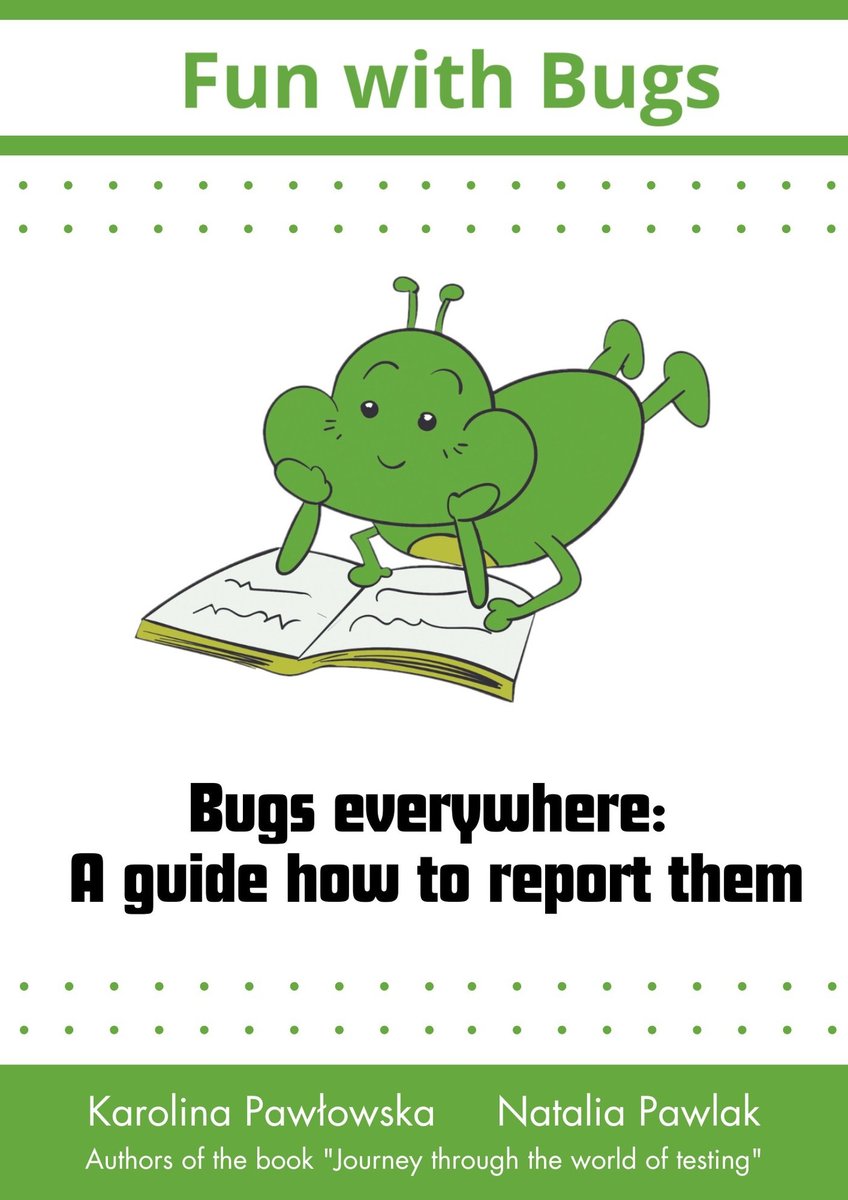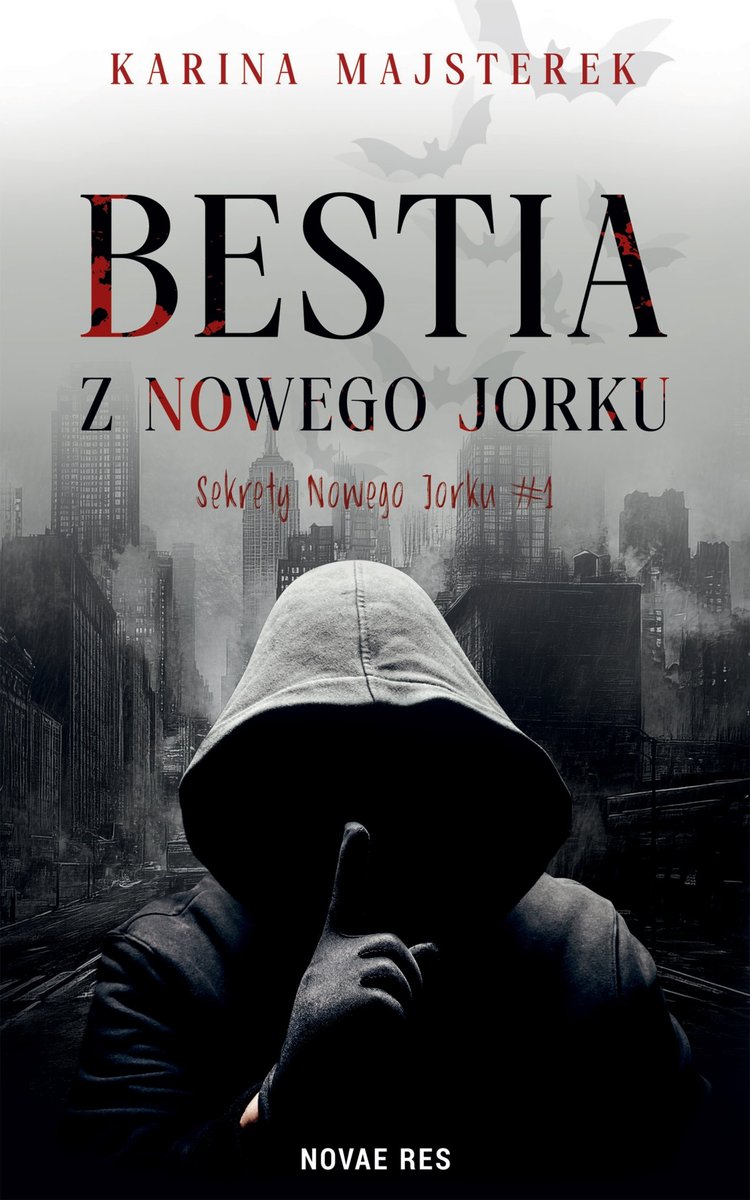12365
| Szczegóły | |
|---|---|
| Tytuł | 12365 |
| Rozszerzenie: | |
12365 PDF - Pobierz:
Pobierz PDF
12365 - podejrzyj 20 pierwszych stron:
A. E. VAN VOCT
ASYLUM
I
INDECISION WAS dark in the mans thoughts as he walked across
the spaceship control room to the cot where the woman lay so taut and
so still. He bent over her; he said in his deep voice:
Were slowing down, Merla.
No answer, no movement, not a quiver in her delicate, abnormally
blanched cheeks. Her fine nostrils dilated ever so slightly with each
measured breath. That was all.
The Dreegh lifted her arm, then let it go. It dropped to her lap like a
piece of lifeless wood, and her body remained rigid and unnatural.
Carefully, he put his fingers to one eye, raised the lid, peered into it. It
stared back at him, a clouded, sightless blue.
He straightened, and stood very still there in the utter silence of the
hurtling ship. For a moment, then, in the intensity of his posture and in
the dark ruthlessness of his lean, hard features, he seemed the veritable
embodiment of grim, icy calculation.
He thought grayly: If I revived her now, shed have more time to
attack me, and more strength. If I waited, shed be weaker
Slowly, he relaxed. Some of the weariness of the years he and this
woman had spent together in the dark vastness of space came to shatter
his abnormal logic. Bleak sympathy touched himand the decision
was made.
He prepared an injection, and fed it into her arm. His gray eyes held
a steely brightness as he put his lips near the womans ear; in a ringing,
resonant voice he said:
Were near a star system. Therell be blood, Merla! And life!
The woman stirred; momentarily, she seemed like a golden-haired
doll come alive. No color touched her perfectly formed cheeks, but
alertness crept into her eyes. She stared up at him with a hardening
hostility, half questioning.
Ive been chemical, she saidand abruptly the doll-like effect
was gone. Her gaze tightened on him, and some of the prettiness
vanished from her face. Her lips twisted into words:~
Its damned funny, Jeel, that youre still 0. K. If I thought
He was cold, watchful. Forget it, he said curtly. Youre an energy
waster, and you know it. Anyway, were going to land.
The flamelike tenseness of her faded. She sat up painfully, but there
was a thoughtful look on her face as she said:
Im interested in the risks. This is not a Galactic planet, is it?
There are no Galactics out here. But there is an Observer. Ive been
catching the secret ultra signals for the last two hoursa sardonic
note entered his voicewarning all ships to stay clear because the
system isnt ready for any kind of contact with Galactic planets.
Some of the diabolic glee that was in his thoughts must have com-
municated through his tone. The woman stared at him, and slowly her
eyes widened. She half whispered:
You mean
He shrugged. The signals ought to be registering full blast now.
Well see what degree system this is. But you can start hoping hard
right now.
At the control board, he cautiously manipulated the room into
darkness and set the automaticsa picture took form on a screen on
the opposite wall.
At first there was only a point of light in the middle of a starry sky,
then a planet floating brightly in the dark space, continents and oceans
plainly visible. A voice came out of the screen:
This star system contains one inhabited planet, the third from the
Sun, called Earth by its inhabitants. It was colonized by Galactics
about seven thousand years ago in the usual manner. It is now in the
third degree of development, having attained a limited form of space
travel little more than a hundred years ago. It
With a swift movement, the man cut off the picture and turned on
the light, then looked across at the woman in a blank, triumphant
silence.
Third degree! he said softly, and there was an almost incredulous
note in his voice. Only third degree. Merla, do you realize what this
means? This is the opportunity of the ages. Im going to call the
Dreegh tribe. If we cant get away with several tankers of blood and a
whole battery of life, we dont deserve to be immortal. We
He turned toward the communicator, and for that exultant moment
caution was a dim thing in the back of his mind. From the corner of his
eye, he saw the woman flow from the edge of the cot. Too late he
twisted aside. The frantic jerk saved him only partially; it was their
cheeks, not their lips that met.
Blue flame flashed from him to her. The burning energy seared his
cheek to instant, bleeding rawness. He half fell to the floor from the
shock; and then, furious with the intense agony, he fought free.
Ill break your bones! he raged.
Her laughter, unlovely with her own suppressed fury, floated up at
him from the floor, where he had flung her. She snarled:
So you did have a secret supply of life for yourself. You damned
double-crpsser!
His black mortification dimmed before the stark realization that
anger was useless. Tense with the weakness that was already a weight
on his muscles, he whirled toward the control board, and began
feverishly to make the adjustments that would pull the ship back into
normal space and time.
The body urge grew in him swiftly, a dark, remorseless need. Twice,
black nausea sent him reeling to the cot; but each time he fought
back to the control board. He sat there finally at the controls, head
drooping, conscious of the numbing tautness that crept deeper,
deeper Almost, he drove the ship too fast. It turned a blazing
white when
at last it struck the atmosphere of the third planet. But those hard
metals held their shape; and the terrible speeds yielded to the fury
of the revérsers and to the pressure of the air that thickened with every
receding mile.
It was the woman who helped his faltering form into the tiny
lifeboat. He lay there, gathering strength, staring with tense eagerness
down at the blazing sea of lights that was the first city he had seen on
the night side of this strange world.
Dully, he watched as the woman carefully eased the small ship into
the darkness behind a shed in a little back alley; and, because succor
seemed suddenly near, sheer hope enabled him to walk beside her to
the dimly lighted residential street nearby.
He would have walked on blankly into the street, but the womans
fingers held him back into the shadows of the alleyway.
Are you mad? she whispered. Lie down. Well stay right here till
someone comes.
The cement was hard beneath his body, but after a moment of the
painful rest it brought, he felt a faint surge of energy; and he was able
to voice his bitter thought:
If you hadnt stolen most of my carefully saved life, we wouldnt
be in this desperate position. You know well that its more important
that I remain at full power.
In the dark beside him, the woman lay quiet for a while; then her
defiant whisper came:
We both need a change of blood and a new charge of life. Perhaps
I did take a little too much out of you, but that was because I had to
steal it. You wouldnt have given it to me of your own free will, and
you know it.
For a time, the futility of argument held him silent, but, as the
minutes dragged, that dreadful physical urgency once more tainted his
thoughts, he said heavily:
You realize of course that weve revealed our presence. We should
have waited for the others to come. Theres no doubt at all that our ship
was spotted by the Galactic Observer in this system before we reached
the outer planets. Theyll have tracers on us wherever we go, and, no
matter where we bury our machine, theyll know its exact location. It is
impossible to hide the interstellar drive energies; and, since they
wouldnt make the mistake of bringing such energies to a third-degree
planet, we cant hope to locate them in that fashion.
But we must expect an attack of some kind. I only hope one of the
great Galactics doesnt take part in it.
One of them! Her whisper was a gasp, then she snapped irritably,
Dont try to scare me. Youve told me time and again that
All right, all right! He spoke grudgingly, wearily. A million years
have proven that they consider us beneath their personal attention.
Andin spite of his appalling weakness, scorn camelet any of the
kind of agents they have in these lower category planets try to stop us.
Hush! Her whisper was tense. Footsteps! Quick, get to your
feet!
He was aware of the shadowed form of her rising; then her hands
were tugging at him. Dizzily, he stood up.
I dont think, he began wanly, that I can
Jeel! Her whisper beat at him; her hands shook him. Its a man
and a woman. Theyre life, Jeel, life!
Life!
He straightened with a terrible effort. A spark of the unquenchable
will to live that had brought him across the black miles and the blacker
years, burst into flames inside him. Lightly, swiftly, he fell into step
beside Merla, and strode beside her into the open. He saw the shapes of
the man and the woman.
In the half~night under the trees of that street, the couple came
toward them, drawing aside to let them pass; first the woman came,
then the manand it was as simple as if all his strength had been there
in his muscles.
He saw Merla launch herself at the man; and then he was grabbing
the woman, his head bending instantly for that abnormal kiss
Afterwardafter they had taken the blood, too.grimness came
to the man, a hard fabric of thought and counterthought, that slowly
formed into purpose; he said:
Well leave the bodies here.
Her startled whisper rose in objection, but he cut her short harshly:
Let me handle this. These dead bodies will draw to this city news
gatherers, news reporters or whatever their breed are called on this
planet; and we need such a person now. Somewhere in the reservoir of
facts possessed by a person of this type must be clues, meaningless to
him, but by which we can discover the secret base of the Galactic
Observer in this system. We must find that base, discover its strength,
and destroy it if necessary when the tribe comes.
His voice took on a steely note: And now, weve got to explore this
city, find a much frequented building, under which we can bury
our ship, learn the language, replenish our own vital suppliesand
capture that reporter.
After Im through with himhis tone became silk smooth he
will undoubtedly provide you with that physical diversion which you
apparently crave when you have been particularly chemical.
He laughed gently, as her fingers gripped his arm in the darkness, a
convulsive gesture; her voice came: Thank you, Jeel, you do under-
stand, dont you?
II
Behind Leigh, a door opened. Instantly the clatter of voices in the
room faded to a murmur. He turned alertly, tossing his cigarette onto
the marble floor, and stepping on it, all in one motion.
Overhead, the lights brightened to daylight intensity; and in that
blaze he saw what the other eyes were already staring at: the two
bodies, the mans and the womans, as they were wheeled in.
The dead couple lay side by side on the flat, gleaming top of the
carrier. Their bodies were rigid, their eyes closed; they looked as dead
as they were, and not at all, Leigh thought, as if they were sleeping.
He caught himself making a mental note of that factand felt
abruptly shocked.
The first murders on the North American continent in twenty-seven
years. And it was only another job. By Heaven, he was tougher than
hed ever believed.
He grew aware that the voices had stopped completely. The only
sound was the hoarse breathing of the man nearest himand then the
scrape of his own shoes as he went forward.
His movement acted like a signal on that tense group of men. There
was a general pressing forward. Leigh had a moment of hard anxiety;
and then his bigger, harder muscles brought him where he wanted to
be, opposite the two heads.
He leaned forward in dark absorption. His fingers probed gingerly
the neck of the woman, where the incisions showed. He did not look up
at the attendant, as he said softly:
This is where the blood was drained?
Yes.
Before he could speak again, another reporter interjected: Any
special comment from the police scientists? The murders are more than
a day old now. There ought to be something new.
Leigh scarcely heard. The womans body, electrically warmed for
embalming, felt eerily lifelike to his touch. It was only after a long
moment that he noticed her lips were badly, almost brutally bruised.
His gaze flicked to the man; and there were the same neck cuts, the
same torn lips. He looked up, questions quivered on his tongue and
remained unspoken as realization came that the calm-voiced attendant
was still talking. The man was saying:
normally, when the electric embalmers are applied, there is
resistance from the static electricity of the body. Curiously, that
resistance was not present in either body.
Somebody said: Just what does that mean?
This static force is actually a form of life force, which usually
trickles out of a corpse over a period of a month. We know of no way
to hasten the process, but the bruises on the lips show distinct burns,
which are suggestive.
There was a craning of necks, a crowding forward; and Leigh
allowed himself to be pushed aside. He stopped attentively, as the
attendant said: Presumably, a pervert could have kissed with such
violence.
I thought, Leigh called distinctly, there were no more perverts
since Professor Ungarn persuaded the government to institute his ~rahd
of mechanical psychology in all schools, thus ending murder, theft, war
and all unsocial perversions.
The attendant in his black frock coat hesitated; then: A very bad
one seems to have been missed.
He finished: Thats all, gentlemen. No clues, no promise of an early
capture, and only this final fact: Weve wirelessed Professor Ungarn
and, by great good fortune, we caught him on his way to Earth from his
meteorite retreat near Jupiter. Hell be landing shortly after dark, in a
few hours now.
The lights dimmed. As Leigh stood frowning, watching the bodies
being wheeled out, a phrase floated out of the gathering chorus of
voices:
The kiss of death
I tell you, another voice said, the captain of this space liner
swears it happenedthe spaceship came past him at a million miles an
hour, and it was slowing down, get that, slowing downtwo days
ago.
The vampire case! Thats what Im going to call it
Thats what Leigh called it, too, as he talked briefly into his wrist
communicator. He finished: Im going to supper now, Jim.
0. K., Bill. The local editors voice came metallically. And say,
Im supposed to commend you. Nine thousand papers took the
Planetarian Service on this story, as compared with about forty-seven
hundred who bought from Universal, who got the second largest
coverage.
And I think youve got the right angle for today also. Husband and
wife, ordinary young couple, taking an evenings walk. Some devil
hauls up alongside them, drains their blood into a tank, their life energy
onto a wire or somethingpeople will believe that, I guess. Anyway,
you suggest it could happen to anybody; so be careful, folks. And you
warn that, in these days of interplanetary speeds, he could be anywhere
tonight for his next murder.
As I said before, good stuff. Thatll keep the story frying hard for
tonight. Oh, by the way
Shoot!
A kid called half an hour ago to see you. Said you expected him.
A kid? Leigh frowned to himself.
Name of Patrick. High school age, about sixteen. No, come to think
of it, that was only my first impression. Eighteen, maybe twenty, very
bright, confident, proud.
I remember now, said Leigh, college student. Interview for a
college paper. Called me up this afternoon. One of those damned
persuasive talkers. Before I knew it, I was signed up for supper at
Constantines.
Thats right. I was supposed to remind you. 0. K.?
Leigh shrugged. I promised, he said.
Actually, as he went out into the blaze of late afternoon, sunlit street,
there was not a thought in his head. Nor a premonition.
Around him, the swarm of humankind began to thicken. Vast
buildings discharged the first surge of the five oclock tidal waveand
twice Leigh felt the tug at his arm before it struck him that someone
was not just bumping him.
He turned, and stared down at a pair of dark, eager eyes set in a
brown, wizened face. The little man waved a sheaf of papers at him.
Leigh caught a glimpse of writing in longhand on the papers. Then the
fellow was babbling:
Mr. Leigh, hundred dollars for these . . . biggest story
Oh, said Leigh. His interest collapsed; then his mind roused itself
from its almost blank state; and pure politeness made him say:
Take it up to the Planetarian office. Jim Brian will pay you what the
story is worth.
He walked on, the vague conviction in his mind that the matter was
settled. Then, abruptly, there was the tugging at his arm again.
Scoop! the little man was muttering. Professor Ungarns log, all
about a spaceship that came from the stars. Devils in it who drink
blood and kiss people to death!
See here! Leigh began, irritated; and then he stopped physically
and mentally. A strange ugly chill swept through him. He stood there,
swaying a little from the shock of the thought that was frozen in his
brain:
The newspapers with those details of blood and kiss were not
on the street yet, wouldnt be for another five minutes.
The man was saying: Look, its got Professor Ungarns name
printed in gold on the top of each sheet, and its all about how he first
spotted the ship eighteen light years out, and how it came all that
distance in a few hours . . . and he knows where it is now and
Leigh heard, but that was all. His reporters brain, that special,
highly developed department, was whirling with a little swarm of
thoughts that suddenly straightened into a hard, bright pattern; and in
that tightly built design, there was no room for any such brazen
coincidence as this man coming to him here in this crowded street.
He said: Let me see those! And reached as he spoke.
The papers came free from the others fingers into his hands, hut
Leigh did not even glance at them. Flis brain was crystal-clear, his eyes
cold; he snapped:
I dont know what game youre trying to pull. I want to know three
things, and make your answers damned fast! One: How did you pick
me out, name and job and all, here in this packed street of a city I
havent been in for a year?
He was vaguely aware of the little man trying to speak, stammering
incomprehensible words. But he paid no attention. Remorselessly, he
pounded on:
Two: Professor Ungarn is arriving from Jupiter in three hours. How
do you explain your possession of papers he must have written, less
than two days ago?
Look, boss, the man chattered, youve got me all wrong
My third question, Leigh said grimly, is how are you going to
explain to the police your pre-knowledge of the details ofmurder?
Huh! The little mans eyes were glassy, and for the first time pity
came to Leigh. He said almost softly:
All right, fellah, start talking.
The words came swiftly, and at first they were simply senseless
sounds; only gradually did coherence come.
And thats the way it was, boss. Im standing there, and this kid
comes up to me and points you out, and gives me five bucks and those
papers youve got, and tells me what Im supposed to say to you and
Kid! said Leigh; and the first shock was already in him.
Yeah, kid about sixteen; no, more like eighteen or twenty . and he
gives me the papers and
This kid, said Leigh, would you say he was of college age?
Thats it, boss; youve got it. Thats just what he was. You know
him, eh? 0. K., that leaves me in the clear, and Ill be going
Wait! Leigh called, but the little man seemed suddenly to realize
that he need only run, for he jerked into a mad pace; and people stared,
and that was all. He vanished around a corner, and was gone forever.
Leigh stood, frowning, reading the thin sheaf of papers. And there
was nothing beyond what the little man had already conveyed by his
incoherent word of mouth, simply a vague series of entries on sheets
from a loose-leaf notebook.
Written down, the tale about the spaceship and its occupants lacked
depth, and seemed more unconvincing each passing second. True,
there was the single word Ungarn inscribed in gold on the top of
each sheet but Leigh shook himself. The sense of silly hoax grew
so violently that
he thought with abrupt anger: If that damned fool college kid really
pulled a stunt like The thought ended; for the idea was as
senseless as everything
that had happened.
And still there was no real tension in him. He was only going to a
restaurant.
He turned into the splendid foyer that was the beginning of the vast
and wonderful Constantines. In the great doorway, he paused
for a moment to survey the expansive glitter of tables, the hanging
garden tearooms; and it was all there.
Brilliant Constantines, famous the world overbut not much
changed from his last visit.
Leigh gave his name, and began: A Mr. Patrick made reservations,
I understand
The girl cut him short. Oh, yes, Mr. Leigh. Mr. Patrick reserved
Private 3 for you. He just now phoned to say hed be along in a few
minutes. Our premier will escort you.
Leigh was turning away, a vague puzzled thought in his mind at the
way the girl had gushed, when a flamelike thought struck him:
Just a minute, did you say Private 3? MThos paying for this?
The girl glowed at him: It was paid by phone. Forty-five hundred
dollars!
Leigh stood very still. In a single, flashing moment, this meeting
that, even after what had happened on the street, had seemed scarcely
more than an irritation to be gotten over with, was become a fantastic,
abnormal thing.
Forty-fivehundreddollars! Could it be some damned fool rich
kid sent by a college paper, but who had pulled this whole affair
because he was determined to make a strong, personal impression?
Coldly, alertly, his brain rejected the solution. Humanity produced
egoists on an elephantiastic scale, but not one who would order a feast
like that to impress a reporter.
His eyes narrowed on an idea: Wheres your registered phone? he
asked curtly.
A minnte later, he was saying into the mouthpiece: Is that the
Amalgamated Universities Secretariat? . . . I want to find out if there is a
Mr. Patrick registered at any of your local colleges, and, if there is,
whether or not he has been authorized by any college paper to
interview William Leigh of the Planetarian News Service. This is
Leigh calling.
It took six minutes, and then the answer came, brisk, tremendous
and final: There are three Mr. Patricks in our seventeen units. All are
at present having supper at their various official residences. There are
four Miss Patricks similarly accounted for by our staff of secretaries.
None of these seven is in any way connected with a university paper.
Do you wish any assistance in dealing with the impostor?
Leigh hesitated; and when he finally spoke, it was with the queer,
dark realization that he was committing himself. No, he said, and
hung up.
He came out of the phone box, shaken by his own thoughts. There
was only one reason why he was in this city at this time. Murder!
And he knew scarcely a soul. Therefore It was absolutely
incredible that any stranger would want to see
him for a reason not connected with his own purpose. He shook the
ugly thrill out of his system; he said:
To Private 3, please
Tensed but cool, he examined the apartment that was Private 3.
Actually that was all it was, a splendidly furnished apartment with a
palacelike dining salon dominating the five rooms, and one entire wall
of the salon was lined with decorated mirror facings, behind which
glittered hundreds of bottles of liquors.
The brands were strange to his inexpensive tastes, the scent of
several that he opened heady andquite uninviting. In the ladies
dressing room was a long showcase displaying a gleaming array of
jewelryseveral hundred thousand dollars worth, if it was genuine,
he estimated swiftly.
Leigh whistled softly to himself. On the surface, Constantines
appeared to supply good rental value for the money they charged.
Im glad youre physically big, said a cool voice behind him. So
many reporters are thin and small.
It was the voice that did it, subtly, differently toned than it had been
over the phone in the early afternoon. Deliberately different.
The difference, he noted as he turned, was in the body, too, the
difference in the shape of a woman from a boy, skillfully but not
perfectly concealed under the well-tailored mans suitactually, of
course, she was quite boyish in build, young, finely molded.
And, actually, he would never have suspected if she had not allowed
her voice to be so purposefully womanish. She echoed his thought
coolly:
Yes, I wanted you to know. But now, theres no use wasting words.
You know as much as you need to know. Heres a gun. The spaceship
is buried below this building.
Leigh made no effort to take the weapon, nor did he even glance at
it. Instead, cool now, that the first shock was over, he seated himself on
the silk-yielding chair of the vanity dresser in one corner, leaned
heavily back against the vanity itself, raised his eyebrows, and said:
Consider me a slow-witted lunk whos got to know what its all
about. Why so much preliminary hocus-pocus?
He thought deliberately: He had never in his adult life allowed
himself to be rushed into anything. He was not going to start now.
III
The girl, he saw after a moment, was small of build. Which was odd,
he decided carefully. Because his first impression had been of
reasonable length of body. Or perhapshe considered the possibility
unhurriedlythis second effect was a more considered result of her
male disguise~
He dismissed that particular problem as temporarily insoluble, and
because actuallyit struck him abruptlythis girls size was unim-
portant. She had long, black lashes and dark eyes that glowed at him
from a proud, almost haughty face. And that was it; quite definitely
that was the essence of her blazing, powerful personality.
Pride was in the way she held her head. It was in the poised easiness
of every movement, the natural shift from grace to grace as she walked
slowly toward him. Not conscious pride here, but an awareness of
superiority that affected every movement of her muscles, and came
vibrantly into her voice, as she said scathingly:
I picked you because every newspaper Ive read today carried your
account of the murders, and because it seemed to me that somebody
who already was actively working on the case would be reasonably
quick at grasping essentials. As for the dramatic preparation, I con-
sidered that would be more convincing than drab explanation. I see I
was mi&taken in all these assumptions.
She was quite close to him now. She leaned over, laid her revolver
on the vanity beside his arm, and finished almost indifferently:
Heres an effective weapon. It doesnt shoot bullets, but it has a
trigger and you aim it like any gun. In the event you develop the
beginning of courage, come down the tunnel after me as quickly as
possible, but dont blunder in on me and the people I shall be talking
to. Stay hidden! Act only if Im threatened.
Tunnel, Leigh thought stolidly, as she walked with a free, swift
stride out of the roomtunnel here in this apartment called Private 3.
Either he was crazy, or she was.
Quite suddenly, realization came that he ought to be offended at the
way she had spoken. And that insultingly simple come-on trick of hers,
leaving the room, leaving him to develop curiosityhe
smiled ruefully; if he hadnt been a reporter, hed show her that such a
second-rate psychology didnt work on him.
Still annoyed, he climbed to his feet, took the gun, and then paused
briefly as the odd, muffled sound came of a door opening
reluctantly He found her in the bedroom to the left of the dining
salon;
and because his mind was still in that state of pure receptiveness,
which, for him, replaced indecisiveness, he felt only the vaguest sur-
prise to see that she had the end of a lush green rug rolled back, and
that there was a hole in the floor at her feet.
The gleaming square of floor that must have covered the opening,
lay back neatly, pinned to position by a single, glitteringly complicated
hinge. But Leigh scarcely noticed that.
His gaze reached beyond thattunnelto the girl; and, in that
moment, just before she became aware of him, there was the barest
suggestion of uncertainty about her. And her right profile, half
turned away from him, showed pursed lips, a strained whiteness, as
if The impression he received was of indecisiveness. He had the
subtle sense of observing a young woman who, briefly, had lost her
superb confidence. Then she saw him; and his whole emotion picture
twisted.
She didnt seem to stiffen in any way. Paying no attention to him at
all, she stepped down to the first stair of the little stairway that led
down into the hole, and began to descend without a quiver of
hesitation. And yet Yet his first conviction that she had faltered
brought him forward with narrowed eyes. And, suddenly, that certainty
of her brief fear made this whole madness real. He plunged forward,
down the steep stairway, and pulled up only when he saw that he was
actually in a smooth, dimly lighted tunnel; and that the girl had paused,
one finger to her lips.
Sssshh! she said. The door of the ship may be open.
Irritation struck Leigh, a hard trickle of anger. Now that he had
committed himself, he felt automatically the leader of this fantastic
expedition; and that girls pretensions, the devastating haughtiness of
her merely produced his first real impatience.
Dont ssshh me! he whispered sharply. Just give me the facts,
and Ill do the rest.
He stopped. For the first time the meaning of all the words she
had spoken penetrated. His anger collapsed like a plane in a crash
landing.
Ship! he said incredulously. Are you trying to tell me theres
actually a spaceship buried here under Constantines?
The girl seemed not to hear; and Leigh saw that they were at the end
of a short passageway. Metal gleamed dully just ahead. Then the girl
was saying:
Heres the door. Now, remember, you act as guard. Stay hidden,
ready to shoot. And if I yell Shoot, you shoot!
She bent forward. There was the tiniest scarlet flash. The door
opened, revealing a second door just beyond. Again that minute,
intense blaze of red; and that door too swung open.
It was swiftly done, too swiftly. Before Leigh could more than grasp
that the crisis was come, the girl stepped coolly into the brilliantly
lighted room beyond the second door.
There was shadow where Leigh stood half-paralyzed by the girls
action. There was deeper shadow against the metal wall toward which
he pressed himself in one instinctive move. He froze there, cursing
silently at a stupid young woman who actually walked into a den of
enemies of unknown numbers without a genuine plan of self-
protection.
Or did she know how many there were? And who?
The questions made twisting paths in his mind down, down to a
thrall of blanknessthat ended only when an entirely different thought
replaced it:
At least he was out here with a gun, unnoticedor was he?
He waited tensely. But the door remained open; and there was no
apparent movement towards it. Slowly, Leigh let himself relax, and
allowed his straining mind to absorb its first considered impressions.
The portion of underground room that he could see showed one end
of what seemed to be a control board, a metal wall that blinked with
tiny lights, the edge of a rather sumptuous cotand the whole was
actually so suggestive of a spaceship that Leighs logic-resistance
collapsed.
Incredibly, here under the ground, actually under Constantines was
a small spaceship and That thought ended, too, as the silence
beyond the open door,
the curiously long silence, was broken by a mans cool voice:
I wouldnt even try to raise that gun if I were you. The fact
that you have said nothing since entering shows how enormously
different we are to what you expected.
He laughed gently, an unhurried, deep-throated derisive laughter that
came clearly to Leigh. The man said:
Merla, what would you say is the psychology behind this young
ladys action? You have of course noticed that she is a young lady, and
not a boy.
A richly toned womans voice replied: She was born here, Jeel. She
has none of the normal characteristics of a Klugg, but she is a Galactic,
though definitely not the Galactic Observer. Probably, shes not alone.
Shall I investigate?
No! The man sounded indifferent to the tensing Leigh. We dont
have to worry about a Kluggs assistant.
Leigh relaxed slowly, but there was a vast uneasiness in his solar
nerves, a sense of emptiness, the first realization of how great a part the
calm assurance of the young woman had played in the fabricating of
his own basic confidence.
Shattered now! Before the enormous certainties of these two, and in
the face of their instant penetration of her male disguise, the effects of
the girls rather wonderful personality seemed a remote pattern,
secondary, definitely overwhelmed.
He forced the fear from him, as the girl spoke; forced his courage to
grow with each word she uttered, feeding on the haughty and immense
confidence that was there. It didnt matter whether she was simulating
or not, because they were in this now, he as deep as she; and only the
utmost boldness could hope to draw a fraction of victory from the
defeat that loomed so starkly.
With genuine admiration, he noted the glowing intensity of her
speech, as she said:
My silence had its origin in the fact that you are the first Dreeghs I
have ever seen. Naturally, I studied you with some curiosity, but I can
assure you I am not impressed.
However, in view of your extraordinary opinions on the matter, I
shall come to the point at once: I have been instructed by the Galactic
Observer of this system to inform you to be gone by morning. Our sole
reason for giving you that much leeway is that we dont wish to bring
the truth of all this into the open.
But dont count on that. Earth is on the verge of being given fourth-
degree rating; and, as you probably know, in emergencies fourths are
given Galactic knowledge. That emergency we will consider to have
arrived tomorrow at dawn.
Well, wellthe man was laughing gently, satiricallya pretty
speech, powerfully spoken, but meaningless for us who can analyze its
pretensions, however sincere, back to the Klugg origin.
What do you intend with her, Jeel?
The man was cold, deadly, utterly sure. Theres no reason why she
should escape. She had blood and more than normal life. It will convey
to the Observer with clarity our contempt for his ultimatum.
He finished with a slow, surprisingly rich laughter: We shall now
enact a simple drama. The young lady will attempt to jerk up her gun
and shoot me with it. Before she can even begin to succeed, I shall
have my own weapon out and firing. The whole thing, as she will
discover, is a matter of nervous co-ordination. And Kluggs are
chronically almost as slow-moving as human beings.
His voice stopped. His laughter trickled away.
Silence.
In all his alert years, Leigh had never felt more indecisive. His
emotions saidnow; surely, shed call now. And even if she didnt, he
must act on his own. Rush in! Shoot!
But his mind was cold with an awful dread. There was something
about the mans voice, a surging power, a blazing, incredible
certainty. Abnormal, savage strength was here; and if this was really
a spaceship from the stars His brain wouldnt follow that flashing,
terrible thought. He
crouched, fingering the gun she had given him, dimly conscious for the
first time that it felt queer, unlike any revolver hed ever had. -
He crouched stiffly, waitingand the silence from the spaceship
control room, from the tensed figures that must be there just beyond his
line of vision, continued. The same curious silence that had followed
the girls entrance short minutes before. Only this time it was the girl
who broke it, her voice faintly breathless but withal cool, vibrant,
unafraid:
Im here to warn, not to force issues. And unless youre charged
with the life energy of fifteen men, I wouldnt advise you to try any-
thing either. After all, I came here knowing what you were.
What do you think, Merla? Can we be sure shes a Klugg? Could
she possibly be of the higher Lennel type?
It was the man, his tone conceding her point, but the derision was
still there, the implacable purpose, the high, tremendous confidence.
And yet, in spite of that unrelenting sense of imminent violence,
Leigh felt himself torn from the thought of her dangerand his. His
reporters brain twisted irresistibly to the fantastic meaning of what
was taking place:
Life energy of fifteen men It was all there; in a monstrous way
it all fitted. The two dead
bodies he had seen drained of blood and life energy, the repeated
reference to a Galactic Observer, with whom the girl was connected.
Leigh thought almost blankly: Galactic meantwellGalac,tic;
and that was so terrific that He grew aware that the woman was
speaking:
Klugg! she said positively. Pay no attention to her protestations,
Jeel. You know, Im sensitive when it comes to women. Shes lying.
Shes just a little fool who walked in here expecting us to be frightened
of her. Destroy her at your pleasure.
Im not given to waiting, said the man. So
Quite automatically, Leigh leaped for the open doorway. He had a
flashing glimpse of a man and woman, dressed in evening clothes, the
man standing, the woman seated.. There was awareness of a gleaming,
metallic background, the control board, part of which he had already
seen, now revealed as a massive thing of glowing instruments; and then
all that blotted out as he snapped:
That will do. Put up your hands.
For a long, dazzling moment he had the impression that his entry
was a complete surprise; and that he dominated the situation. None of
the three people in the room was turned toward him. The man, Jeel,
and the girl were standing, facing each other; the woman, Merla, sat in
a deep chair, her fine profile to him, her golden head flung back.
It was she who, still without looking at him, sneered visibly and
spoke the words that ended his brief conviction of triumph. She said to
the disguised girl:
You certainly travel in low company, a stupid human being. Tell
him to go away before hes damaged.
The girl said: Leigh, Im sorry I brought you into this. Every move
you made in entering was heard, observed and dismissed before you
could even adjust your mind to the scene.
Is his name Leigh? said the woman sharply. I thought I recog-
nized him as he entered. Hes very like his photograph over his news-
paper column. Her voice grew strangely tense: Jeel, a newspaper
reporter!
We dont need him now, the man said. We know who the
Galactic Observer is.
Eh? said Leigh; his mind fastened hard on those amazing words.
Who? How did you find out? What
The information, said the woman; and it struck him suddenly that
the stra~nge quality in her.voice was eagerness, will be of no use to
you. Regardless of what happens to the girl, youre staying.
She glanced swiftly at the man, as if seeking his sanction. Re-
member, Jeel, you promised..
It was all quite senseless, so meaningless that Leigh had no sense of
personal danger. His mind scarcely more than passed the words; his
eyes concentrated tautly on a reality that had, until that moment,
escaped his awareness. He said softly:
Just now you used the phrase, Regardless of what happens to the
girl. When I came in, you said, Tell him to go away before. hes
damaged.
Leigh smiled grimly: I need hardly say this is a far cry from the
threat of immediate death that hung over us a few seconds ago. And I
have just now noticed the reason.
A little while ago, I heard our pal, Jeel dare my little girl friend
here to raise her gun. I notice now that she has it raised. My entrance
did have an effect. He addressed himself to the girl, finished swiftly:
Shall we shootor withdraw?
It was the man who answered: I would advise withdrawal. I could
still win, but I am not the heroic type who takes the risk of what might
well be a close call.
He added, in an aside to the woman: Merla, we can always catch
this man, Leigh, now that we know who he is.
The girl said: You first, Mr. Leigh. And Leigh did not stop to
argue.
Metal doors clanged behind him, as he charged along the tunnel.
After a moment, he was aware of the girl running lightly beside him.
The strangely unreal, the unbelievably murderous little drama was
over, finished as fantastically as it had begun.
Iv
Outside Constantines a gray light gathered around them. A twi light
side street it was, and people hurried past them with the strange,
anxious look of the late for supper. Night was falling.
Leigh stared at his companion; in the dimness of the deep dusk, she
seemed all boy, slightly, lithely built, striding along boldly. He laughed
a little, huskily, then more grimly:
Just what was all that? Did we escape by the skin of our teeth? Or
did we win? What made you think you could act like God, and give
those tough eggs twelve hours to get out of the Solar System?
The girl was silent after he had spoken. She walked just ahead of
him, head bent into the gloom. Abruptly, she turned; she said:
I hope you will have no nonsensical idea of telling what youve
seen or heard.
Leigh said: This is the biggest story since
Lookthe girls voice was pityingyoure not going to print a
word because in about ten seconds youll see that no one in the world
would bçlieve the first paragraph.
In the darkness, Leigh smiled tightly: The mechanical psychologist
will verify every syllable.
I came prepared for that, too! said the vibrant voice. Her hand
swung up, toward his face. Too late, he jerked back.
Light flared in his eyes, a dazzling, blinding force that exploded into
his sensitive optic nerves with all the agonizing power of intolerable
brightness. Leigh cursed aloud, wildly, and snatched forward toward
his tormentor. His right hand grazed a shoulder. He lashed out
violently with his left, and tantalizingly caught only the edge of a
sleeve that instantly jerked away.
You little devil! he raged futilely. Youve blinded me.
Youll be all right, came the cool answer, but youll find that the
mechanical psychologist will report anything you say as the purest
imagination. In view of your threat to publish, I had to do that. Now,
give me my gun.
The first glimmer of sight was returning. Leigh could see her body a
dim, wavering shape in the night. In spite of the continuing pain, Leigh
smiled grimly. He said softly:
Ive just now remembered you said this gun didnt shoot bullets.
Even the feel of it suggests that itll make an interesting proof of
anything I say. So
His smile faded abruptly. For the girl stepped forward. The metal
that jabbed into his ribs was so hardly thrust, it made him grunt.
Give me that gun!
Like fun I will, Leigh snapped. You ungrateful little ruffian, how
dare you treat me so shoddily after I saved your life? I ought to knock
you one right on the jaw for
He stoppedstopped because with staggering suddenness the hard,
hard realization struck that she meant it. This was no girl raised in a
refined school, who wouldnt dare to shoot, but a cold-blooded young
creature, who had already proved the metalliclike fabric of which her
courage was made.
He had never had any notions about the superiority of man over
woman; and he felt none now. Without a single word, almost hastily,
he handed the weapon over. The girl took it, and said coldly:
You seem to be laboring under the illusion that your entry into the
spaceship enabled me to raise my weapon. Youre quite mistaken.
What you did do was to provide me with the opportunity to let them
think that that was the situation, and that they dominated it. But I
assure you, that is the extent of your assistance, almost valueless.
Leigh laughed out loud, a pitying, ridiculing laugh.
In my admittedly short life, he said laconically, Ive learned to
recognize a quality of personality and magnetism in human beings.
Youve got it, a lot of it, but not a fraction of what either of those two
had, particularly the man. He was terrible. He was absolutely the most
abnormally magnetic human being Ive ever run across. Lady, I can
only guess what all this is about, but Id advise you Leigh paused,
then finished slashingly you and all the other Kluggs to stay away
from that couple.
Personally, Im going to get the police in on this, and theres going
to be a raid on Private ~. I didnt like that odd threat that they could
capture me any time. Why me
He broke off hastily: Hey, where are you going? I want to know
your name. I want to know what made you think you could order those
two around. Who did you think you were?
He said no more, his whole effort concentrated on running. He could
see her for a moment, a hazy, boyish figure against a dim corner light.
Then she was around the corner.
His only point of contact with all this; and if she got away
Sweating, he rounded the corner; and at first the street seemed
dark arid empty of life. Then he saw the car.
A normal-looking, high-hooded coupe, long, low-built, that began to
move forward noiselessly andquite normally.
It became abnormal. It lifted. Amazingly, it lifted from the ground.
He had a swift glimpse of white rubber wheels folding out of sight.
Streamlined, almost cigar-shaped now, the spaceship that had been a
car darted at a steep angle into the sky.
Instantly it was gone.
Above Leigh, the gathering night towered, a strange, bright blue. In
spite of the brilliant lights of the city glaring into the sky, one or two
stars showed. He stared up at them, empty inside, thinking: It was like
a dream. ThoseDreeghscoming out of spacebloodsuckers,
vampires.
Suddenly hungry, he bought a chocolate from a sidewalk stand, and
stood munching it.
He began to feel better. He walked over to a nearby wall socket, and
plugged in his wrist radio.
Jim, he said. Ive got some stuff, not for publication, but maybe
we can get some police action on it. Then I want you to have a
mechanical psychologist sent to my hotel room. There must be some
memory that can be salvaged from my brain
He went on briskly. His sense of inadequacy waned notably. Re-
porter Leigh was himself again.
V
The little glistening balls of the mechanical psychologist were
whirring faster, faster. They became a single, glowing circle in the
darkness. And not till then did the first, delicious whiff of psycho-
gas touch his nostrils. He felt himself drifting, slipping A voice
began to speak in the dim distance, so far away that not
a word came through. There was only the sound, the faint, curious
sound, and the feeling, stronger every instant, that he would soon be
able to hear the fascinating things it seemed to be saying.
The longing to hear, to become a part of the swelling, murmuring
sound drew his whole being in little rhythmical, wavelike surges. And
still the promise of meaning was unfulfilled.
Other, private thoughts ended utterly. Only the mindless chant re-
mained, and the pleasing gas holding him so close to sleep, its flow
nevertheless so delicately adjusted that his mind hovered minute after
minute on the ultimate abyss of consciousness.
He lay, finally, still partially awake, but even the voice was merging
now into blackness. It clung for a while, a gentle, friendly,
melodious sound in the remote background of his brain, becoming
more remote with each passing instant. He slept, a deep, hypnotic
sleep, as the machine purred on When Leigh opened his eyes, the
bedroom was dark except for the
floor lamp beside a corne










